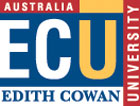Graduate Diploma of Occupational Health and Safety
Graduate Diploma of Occupational Health and Safety
Develops professionals in the field of occupational health and safety (OHS), in particular, to develop the skills of identification and management of workplace hazards that may adversely impact on the health and safety of workers. On completion of the program it is expected that students should be able to: implement…
Categories
COURSE DESCRIPTION
Develops professionals in the field of occupational health and safety (OHS), in particular, to develop the skills of identification and management of workplace hazards that may adversely impact on the health and safety of workers.
On completion of the program it is expected that students should be able to: implement and assess an occupational health and safety management system that reflects the OHS needs and issues of an organisation, taking into account the size and complexity of the organisation; critically review the risk management processes that have been developed for a workplace and/or industry, including the characterisation of incident-investigation processes identifying issues in specific industries/workplaces; critically review the legal framework for occupational safety and health in Australia; synthesise the factors that have influenced the development of occupational safety and health law in Australia; synthesise the factors that influence the application of occupational safety and health legislation in the workplace; categorise hazards according to type, assess when a hazard becomes a risk and characterise the principles of safe design in relation to potential impacts on people, plant and/or the environment; demonstrate academic skills which include writing, referencing and researching at a postgraduate level including professional competencies in the use of commonly used business software packages used in occupational health and safety.
Course learning outcomes
Communicate advanced specialised OHS/WHS knowledge, concepts and skills to a variety of audiences.
Apply high level independent judgement when investigating and evaluating complex OHS/WHS situations to generate solutions.
Demonstrate leadership and management skills by planning, implementing and evaluating substantial OHS/WHS projects.
Career Opportunities
Graduates would be suited to roles in the mining, oil and gas, construction, government and non-government sectors.
Possible future job titles
OHS, WHS
REQUIREMENTS
All applicants are required to have an undergraduate degree in any discipline. Alternatively applicants can apply if they have completed the Graduate Certificate in Occupational Health and Safety, with equivalents considered.
Academic admission requirements (Band 6) may be satisfied through completion of one of the following:
Bachelor degree; or
Equivalent prior learning including at least five years relevant professional experience.
English competency requirements:
IELTS Academic: An overall band minimum score of 6.5, with no individual band less than 6.0.) (Results are typically valid for 2 years and online tests are not acceptable.)
TOEFL iBT: TOEFL iBT: 84 (with no score below 17)
TOEFL Paper-Based Test (PBT): Minimum score of 573, including Test of Written English of 5.0 or better. (Results are typically valid for only 2 years)
Pearson Test of English (PTE): PTE Academic 58, with no score less than 50 for postgraduate standard entry courses. (Results are typically valid for only 2 years)
EDUCATIONAL INSTITUTION
Edith Cowan University (ECU) is a large, multi-campus institution serving communities in Western Australia and internationally.ECU was awarded university status in 1991, but despite its relative youth, the University has a proud history of more than a century of service to education in Western Australia and is recognised for its teaching and learning, excellence in research, and partnerships with the community.We have more than 23,300 students, including around 18,500 undergraduates and 4,800 postgraduates. Approximately 3,600 international students attend the University, originating from 104 countries.We are a progressive University with courses developed through ongoing industry input, and employing lecturers who engage fully with their students. We’re a university that knows while knowledge is important, understanding comes from experience –experience that enables you to adapt what you’ve learned to whatever opportunities come your way. Because that’s when you do more than just survive in this world. You thrive in it.




